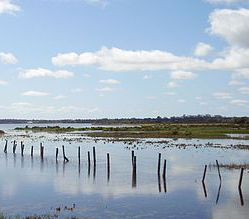Wetland loss estimated
 Experts say the world has lost a fifth of its wetlands in the last 300 years.
Experts say the world has lost a fifth of its wetlands in the last 300 years.
The world lost about 20 per cent of its natural wetlands between 1700 and 2020, according to a new study.
The findings may provide a basis for assessing the impact of wetland loss on the wider environment.
Wetlands provide important ecosystem services but are often drained and converted for urbanisation or agricultural development.
Also, it has been challenging to adequately map wetland loss at a global scale. Previous research has suggested that at least 50 per cent of wetland has been lost since 1900, although estimates range between 28 per cent and 87 per cent net loss since 1700.
Such a wide range of figures makes it difficult to assess the environmental impact of wetland conversion.
Researchers from Australia’s Charles Sturt University and James Cook University have worked with scientists at the USA’s Stanford University to reconstruct the timing and spatial distribution of wetland loss due to human intervention.
They did this by combining 3,320 international and regional records of wetland drainage and land conversion from 154 countries with existing data on land usage and simulated wetland extent.
They estimate that 3.4 million square kilometres of inland wetlands have been lost since 1700 - a net loss of 21 per cent of global wetlands. This finding is supported by existing regional estimates of loss.
The most common causes of wetland disappearance are drainage for upland crops, conversion to flooded rice fields, and urban development. The drivers for conversion varied by region, and the authors note that wetland loss has been concentrated in Europe, the United States and China.
This study documents an environmental shift at the global scale and could be a crucial resource for monitoring how human activity is influencing environmental change, the authors conclude.








 Print
Print